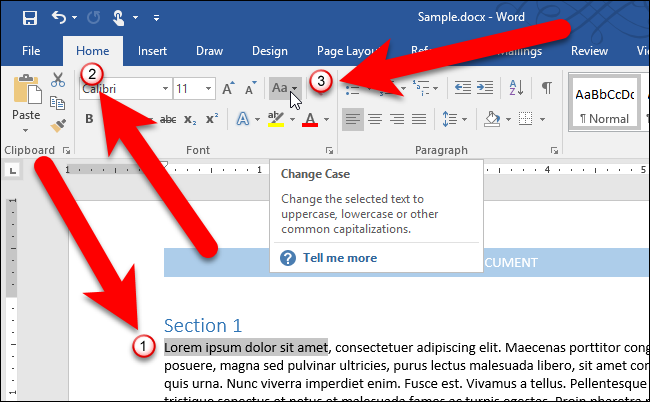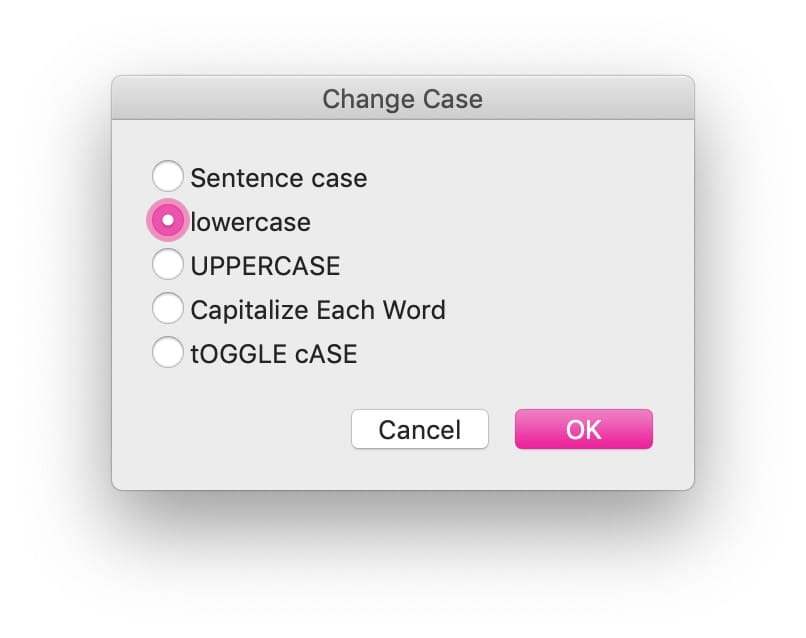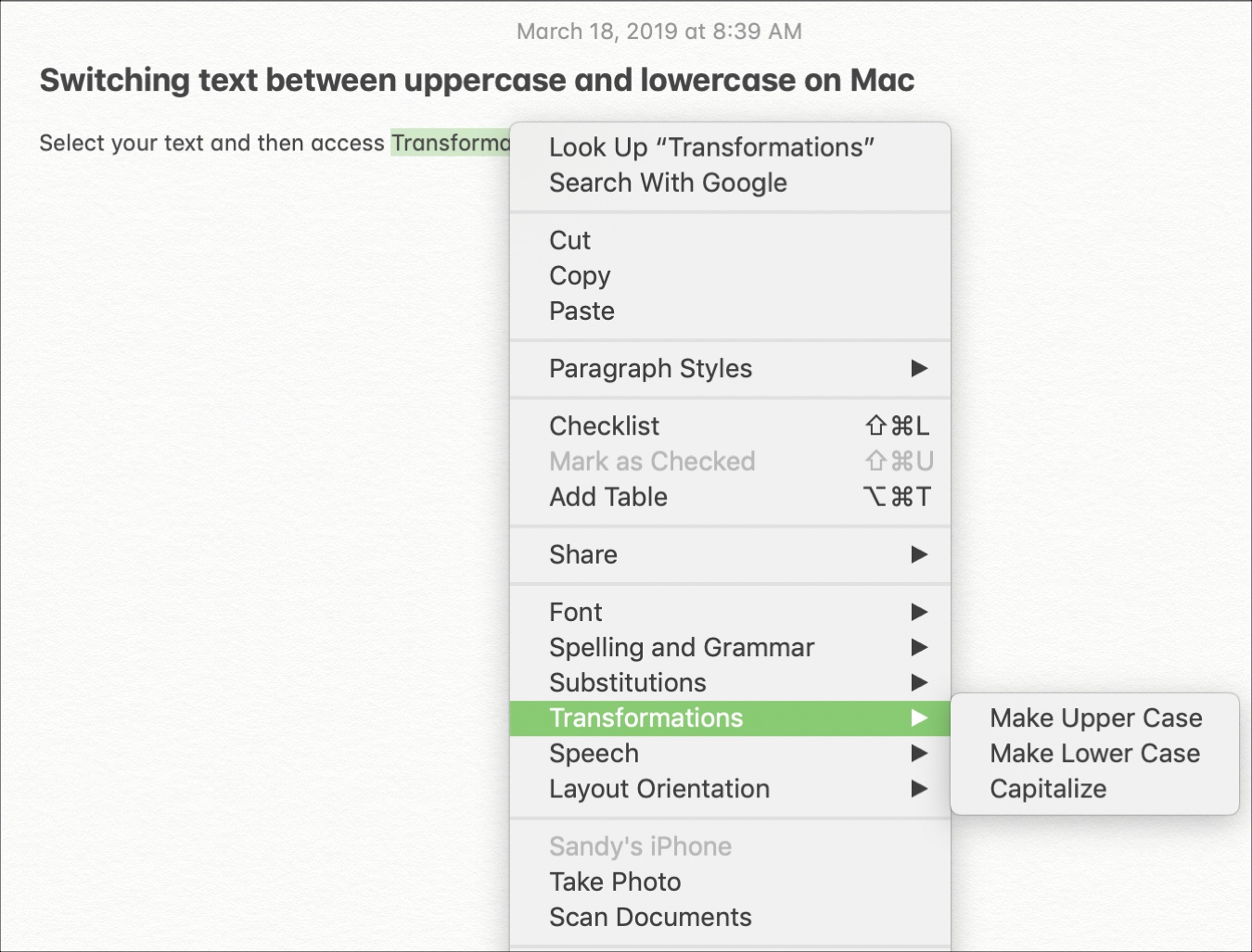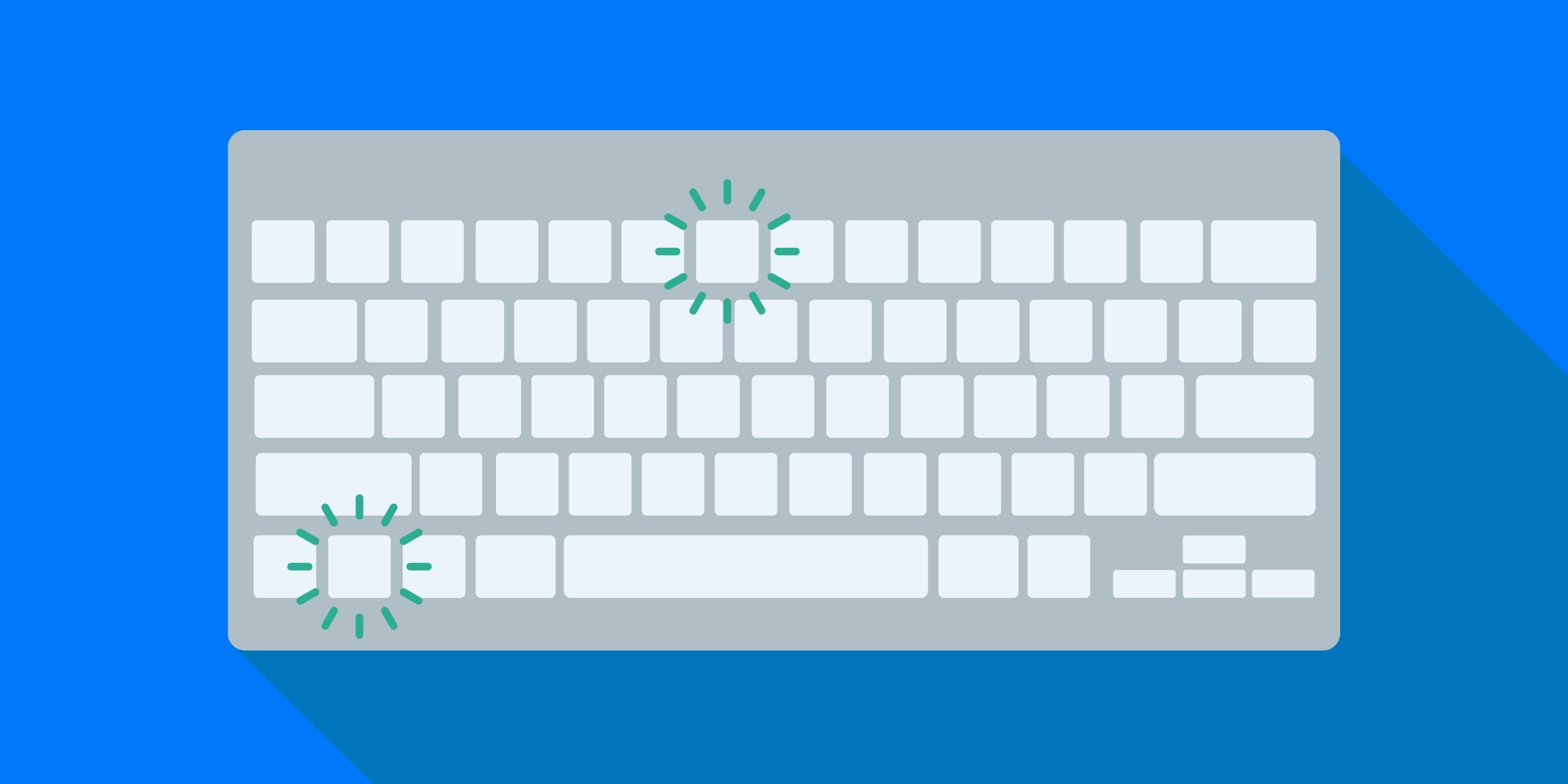

- #CHANGE TO UPPERCASE MAC KEY SHORTCUT HOW TO#
- #CHANGE TO UPPERCASE MAC KEY SHORTCUT ZIP FILE#
- #CHANGE TO UPPERCASE MAC KEY SHORTCUT WINDOWS#

#CHANGE TO UPPERCASE MAC KEY SHORTCUT WINDOWS#
Pressing F11 hides all open windows and shows the desktop instead.Pressing F10 shows all open windows for the active application.Pressing F9 launches “Mission Control.”.Pressing F8 displays thumbnails of your current work spaces.Pressing F7 lets you rewind a video that you were watching.Pressing F4 gives you quick access to business, communication and Internet tools.Pressing F3 lets you switch to “Expose” view to see all running programs or apps.

Traditionally, Function keys were designed to work as shortcuts to system-related commands usually buried under convoluted menus and submenus however, since they are not frequently used by the average user, Function keys have been increasingly remapped to provide quick access to basic customization tools (like brightness or volume control) although their traditional functions have not been completely removed but simply delegated to the backseat instead.*įor example, in the current Mac keyboard design, SEE THE BEST PRICES ON NEW MACS ON AMAZON What Do Function Keys Do? The modifier keys, on the other hand, are the sets of keys that you use in combination with another key to perform specific functions like the CMD, CTRL, Caps Lock, Shift, and Option keys. sun icon for brightness and speaker icon for volume). F1, F2, F3, etc.) or an icon that signifies what they do (e.g. The function keys are usually located at the top most part of your keyboard and are either marked with a letter F followed by a number (e.g. Among the sets of keys that the functions of which you can easily change and remap according to your needs are the function and modifier keys. You can modify the functions of some keys, but there are some that you cannot. There are several sets of keys on your Mac keyboard that perform individual functions.

#CHANGE TO UPPERCASE MAC KEY SHORTCUT HOW TO#
If you have a lot of unused keyboard shortcuts yourself and would like to replace their functions with something that you actually use, below is a guide on how to remap keys on your Mac. But it's still better than having to delete the word(s) and retype them in uppercase.When Apple designed the MacBook keyboards, they were probably thinking of which commands we will be using the most when they assigned shortcuts to specific functions, but as with everything else that is being used by millions of people, actual usage does not always align with intended purpose, so many default keys are left unused while some missing keys remain desired. It's a bit clunky - you see the characters being pasted back one by one, and thus an Undo undoes every character individually, and it runs regardless of whether you actually have text selected or not. I can then select some text and press Ctrl+ Shift+ U to convert to uppercase. which I then activate by running the file with AutoHotkeyU64.exe. Send, %s% Send the contents of the 's' var S:=Format("",ClipBoard) Convert to uppercase, save in 's' varĬlipBoard := oCB return original Clipboard contents Send, ^c Send Ctrl+C to copy whatever is currently selected OCB := ClipboardAll save clipboard contents before doing anything, if that is possible. A better version would check for text being selected This actually runs regardless of whether some text is selected or not,
#CHANGE TO UPPERCASE MAC KEY SHORTCUT ZIP FILE#
I managed to get AutoHotkey to work - it's free and you can download the program as a zip file rather than having to run an installer, which is handy for those of us who don't have admin rights. I too have wanted this for ages as I do something similar on my Mac with WordService.


 0 kommentar(er)
0 kommentar(er)
